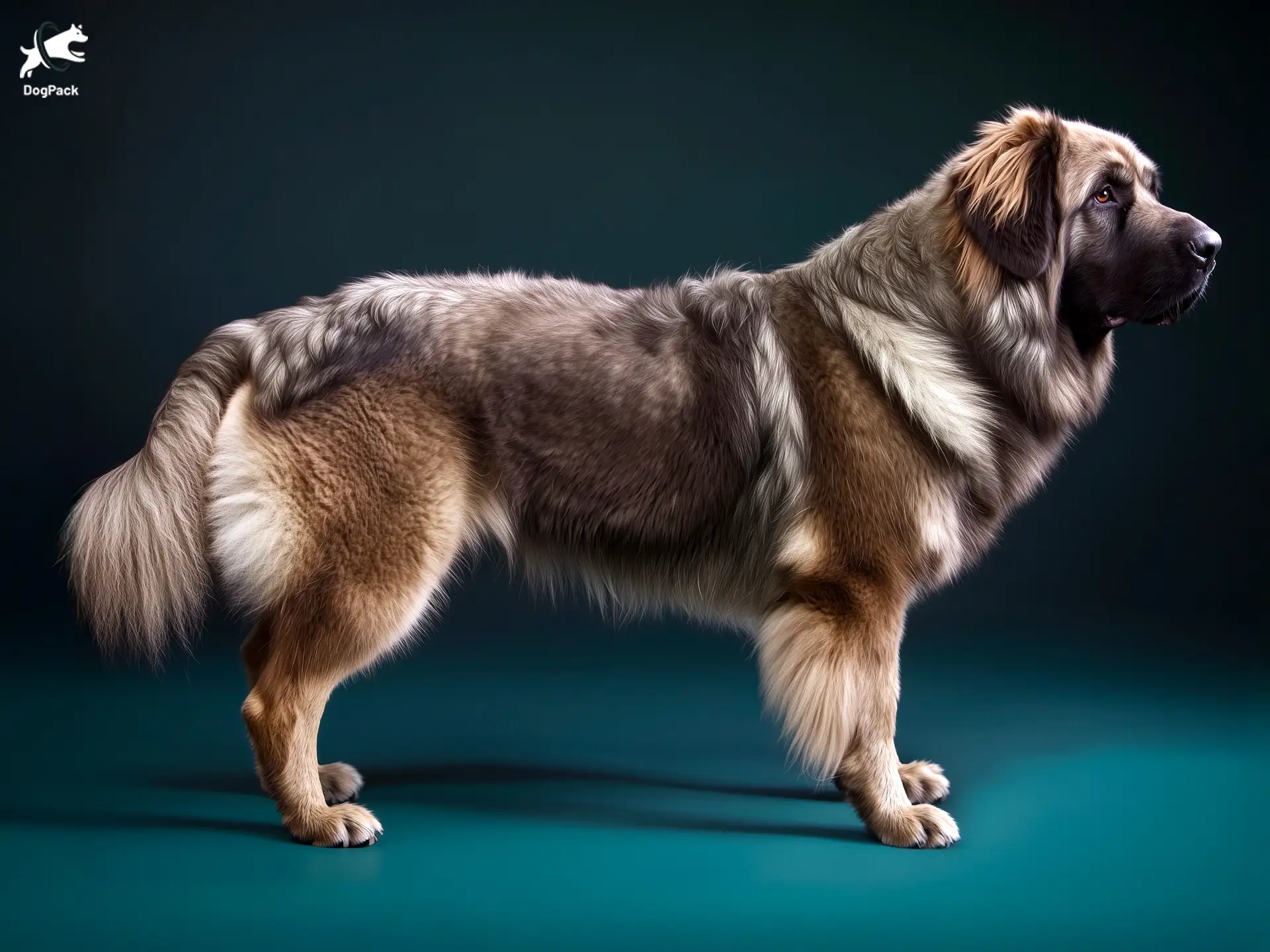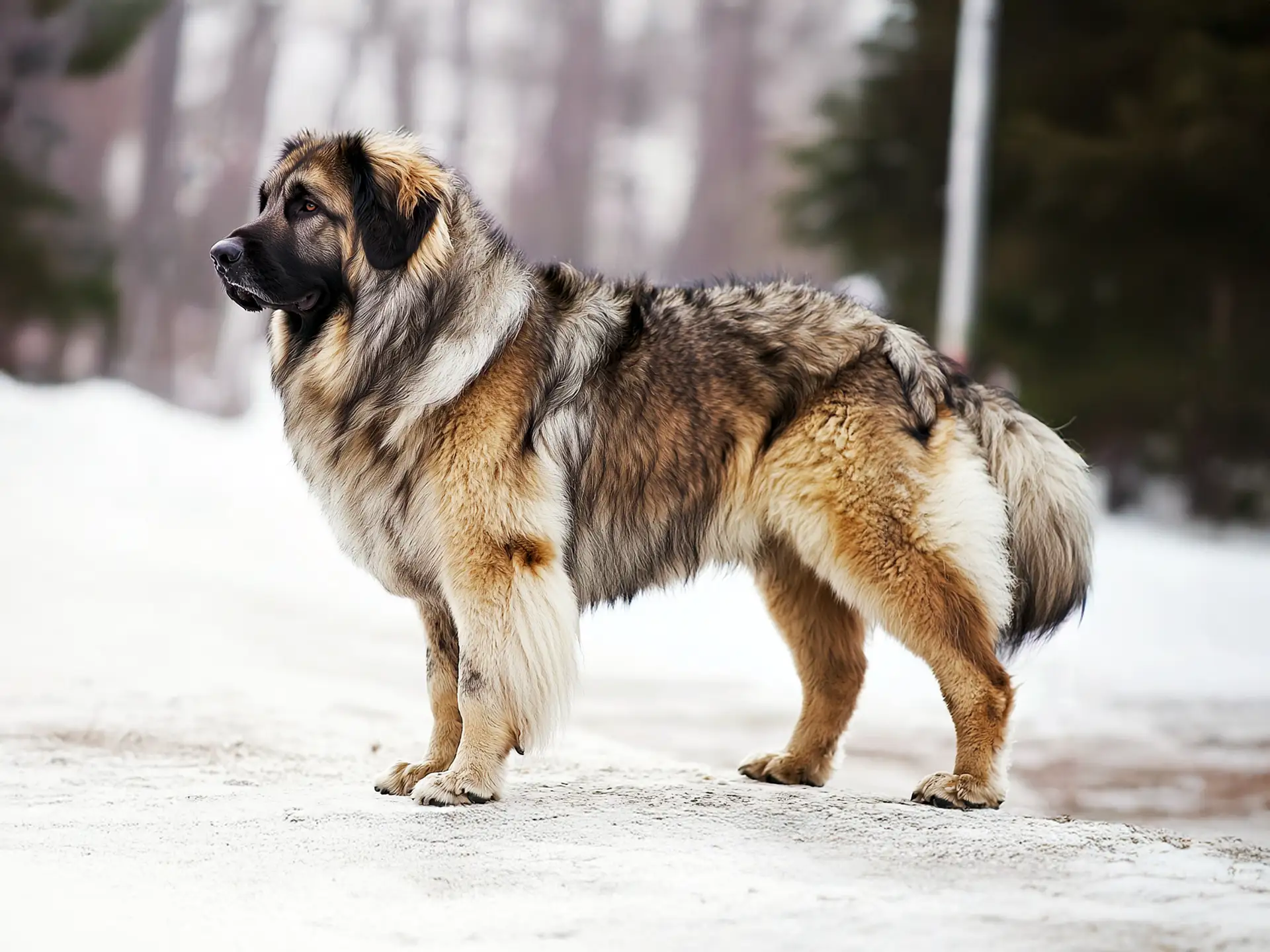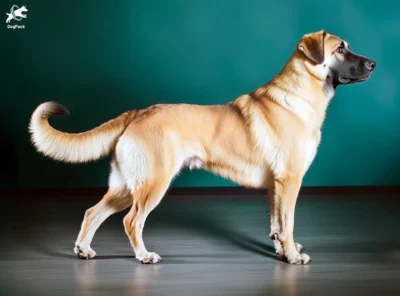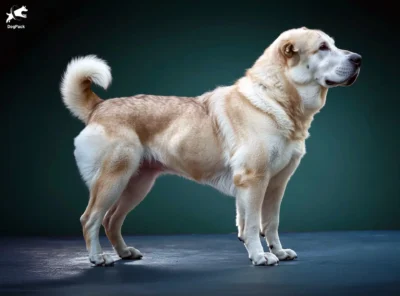Caucasian Shepherd Dog Breed Info & Overview
The Caucasian Shepherd Dog, or Caucasian Ovcharka, is a powerful breed from the Caucasus Mountains, known for its blend of protective instincts and fluffy coat. These massive dogs are incredibly loyal and excel as guardians, offering both strength and affection to those they trust. With their imposing presence and gentle heart, Caucasian Shepherds are a remarkable choice for households that can appreciate their devotion and care.
Characteristics
Pictures
Breed History
The Caucasian Shepherd Dog originated in the rugged Caucasus Mountains between Europe and Asia, where they have been bred for centuries. Known for their fearlessness, these dogs were essential to protecting livestock from predators like wolves and bears.
The harsh terrain and climate shaped the Caucasian Shepherd into a resilient guardian with a thick, double coat and a formidable build. These traits allowed them to endure extreme weather conditions while remaining vigilant in their duties.
The name “Ovcharka,” meaning “shepherd’s dog” in Russian, reflects their role as trusted livestock protectors. Over generations, the Caucasian Shepherd Dog has come to symbolize strength and loyalty in its native regions, a testament to their history and character.
Temperament, Personality
Known for their unwavering loyalty, Caucasian Shepherds form deep bonds with their families, often showing a natural protectiveness. While this makes them excellent guardians, they require early socialization to balance their protective instincts with positive behavior around strangers.
With children, they can be gentle and affectionate, particularly when raised alongside them. However, due to their size and protective nature, supervision is recommended to ensure safe interactions, especially around young kids.
Introducing them to other pets early on is essential for harmony, as they may perceive unfamiliar animals as potential threats. With consistent training, Caucasian Shepherds can coexist peacefully in multi-pet households, making them devoted family members.
Physical Characteristics
The Caucasian Shepherd Dog is imposing, with males often reaching up to 170 pounds. Their robust and muscular build, combined with a powerful stance, commands attention and respect.
Their dense, double coat is available in various colors, including gray, fawn, and brindle, providing insulation against harsh weather. This thick coat, along with their strong jaws and large frame, contributes to their striking and resilient appearance.
One of their most notable features is their expressive, intelligent eyes, which reveal alertness and an unwavering presence. With a sturdy physique built for strength and endurance, Caucasian Shepherds embody the traits needed to thrive in tough environments.
Health Issues
As a large breed, Caucasian Shepherds may be prone to certain health conditions, including hip dysplasia, which affects the hip joints. Maintaining a healthy weight and ensuring regular vet check-ups can help mitigate this risk.
Heart conditions such as cardiomyopathy are also observed in some individuals. Routine screenings aid in early detection and management, ensuring they maintain a good quality of life.
Dental health is important, as they can be susceptible to periodontal disease. Regular teeth brushing and professional dental care help maintain healthy gums and prevent complications over time.
Grooming Needs
Their thick double coat requires consistent grooming, ideally two to three times a week, to prevent matting and manage shedding. During peak shedding seasons in spring and fall, daily brushing may be necessary to control excess hair around the home.
Using a slicker brush or de-shedding tool can be effective in removing loose fur. Bathing is only necessary when they get especially dirty, as frequent washing can strip the coat of natural oils that keep it healthy.
Routine ear cleaning, nail trimming, and dental care should also be part of their grooming routine. This care not only keeps them looking their best but also helps maintain overall health and comfort.
Exercise Requirements
Despite their size, Caucasian Shepherds have moderate exercise needs. A couple of long daily walks or a spacious yard to roam freely is generally sufficient to keep them content.
They benefit greatly from mental stimulation, as well. Engaging them with puzzle toys or short training sessions helps satisfy their intelligent minds and reduces boredom.
Activities like hiking or guarding duties provide both physical and mental stimulation, but high-impact exercises should be avoided to protect their joints. For those seeking a balanced companion, Caucasian Shepherds can offer both loyalty and a calm demeanor.
Training Tips
Early socialization is vital for the Caucasian Shepherd Dog to become a well-rounded adult. Exposing them to various people, animals, and situations from an early age helps them develop a calm disposition around unfamiliar settings.
Though intelligent, they have a naturally independent and stubborn streak. Consistent, firm, yet positive training methods yield the best results, fostering respect and cooperation.
Obedience classes can be beneficial, providing structure and equipping owners with effective training techniques. Patience is crucial, as is the persistence to maintain their skills over time, which will ensure a balanced, well-behaved dog.
Nutrition, Diet
Given their large size, Caucasian Shepherds require a diet formulated for large or giant breeds, rich in high-quality protein to maintain their muscle mass. Foods with glucosamine and chondroitin support joint health, essential for a breed of their stature.
Portion control is essential to prevent obesity, as excess weight can worsen joint issues. Generally, adult Caucasian Shepherds may need between 6 to 8 cups of dry food daily, divided into two meals to manage digestion and energy levels.
Regular weight monitoring, along with consultation from a veterinarian, ensures their diet meets their nutritional needs. A balanced diet contributes to their health, longevity, and overall well-being.
Adoption, Breeders
When considering a Caucasian Shepherd Dog, finding a reputable breeder is crucial. Look for breeders who conduct health screenings and provide references from past buyers, ensuring quality and care.
Adoption is also an option, with breed-specific organizations such as the Caucasian Ovcharka Rescue Rehome specializing in this breed. Adoption can be a rewarding experience and offers a chance to provide a home for a dog in need.
Avoid purchasing from pet stores or puppy mills where health and temperament may not be prioritized. Visiting breeders in person and meeting the puppy’s parents is a valuable step in selecting a healthy, well-adjusted companion.
Family Pet?
With proper training and socialization, they can make devoted family pets. Their protective nature extends to all family members, making them vigilant guardians.
They can be gentle with children they know but may not tolerate rough play from unfamiliar kids. Teaching both the dog and children proper interaction is important.
Due to their size and protective instincts, they may not be ideal for households with small pets unless raised together from a young age. Careful supervision is recommended.
Right For You?
If you’re an experienced dog owner looking for a loyal and protective companion, this breed could be a great match. They thrive in spacious environments where they can patrol and feel purposeful.
Apartment living is not ideal due to their size and need for space. They do best in homes with secure, large yards and preferably in rural settings.
Time commitment is essential for training and socialization. If you’re willing to invest effort into proper upbringing, you’ll be rewarded with a devoted and reliable companion.
Conclusion
Choosing the Caucasian Shepherd Dog is a significant commitment that comes with immense rewards. Their loyalty and protective instincts make them exceptional guardians for those who can handle their size and training needs. Not suited for first-time dog owners, they require someone who understands large breeds and is prepared to provide consistent guidance. If you have the space, experience, and dedication, this majestic breed could be the perfect addition to your family.
FAQs
-
Why are Caucasian Shepherd Dogs known for their strong guarding instincts?
Caucasian Shepherd Dogs were bred to protect livestock in mountainous regions, giving them a natural guarding instinct. Their loyalty and courage make them vigilant protectors, suited for guarding tasks with proper training.
-
Are Caucasian Shepherd Dogs prone to drooling?
Yes, Caucasian Shepherd Dogs can drool, especially in warm weather or after drinking. Their size and facial structure contribute to this trait, so keeping a towel nearby is helpful for cleanup.
-
What is the best climate for a Caucasian Shepherd Dog?
They are well-suited for colder climates due to their thick double coat. Hot and humid environments can be challenging, so adequate shade and hydration are essential in warmer areas.
-
How big do Caucasian Shepherd Dogs get?
Males can reach up to 170 pounds (77 kg) and stand 30 inches (76 cm) tall. Females are slightly smaller but still large, making them one of the biggest dog breeds.
-
How much does a Caucasian Shepherd Dog puppy cost?
A Caucasian Shepherd Dog puppy can cost anywhere from $1,000 to $3,000, depending on the breeder, lineage, and location. Always ensure you’re purchasing from a reputable breeder who prioritizes health and temperament.
Breed Ratings
The Caucasian Shepherd Dog is intelligent and capable of independent thinking but may be stubborn during training.
They enjoy playtime with their family but are not overly exuberant, preferring structured activities.
Moderate energy levels mean they appreciate daily walks but don’t require intense exercise.
Heavy shedders, especially during seasonal changes, requiring regular grooming.
Lower prey drive but may chase smaller animals if not socialized properly.
Their thick coat demands consistent grooming to maintain its condition.
They can be trained with patience and consistency but may exhibit stubbornness.
Fairly independent, they can handle being alone for reasonable periods.
They are vocal when alerting to perceived threats, making them effective watchdogs.
Moderate drooling, especially after eating or drinking.
May be reserved or territorial around other dogs without proper socialization.
Generally healthy but prone to certain genetic conditions common in large breeds.














